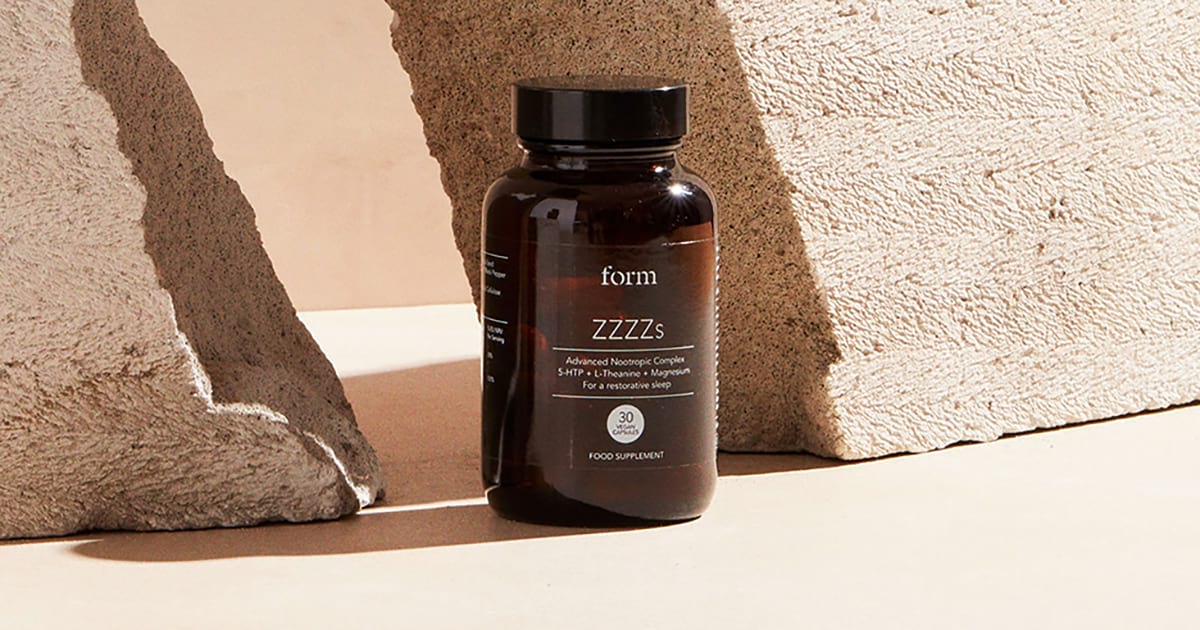What’s The Difference Between Nootropics and Adaptogens?

The world of cognitive enhancers isn’t exactly blessed with pronounceable terms, and with that bounty of syllables comes great confusion. For those out of the know, one of the most discombobulating is the debate between what sits in the nootropic camp, and who’s flying the flag for team adaptogen.
Really it’s not going to make a massive difference to how you approach the discipline, and both terms are used interchangeably without much fuss needing to be kicked up. But if you’re keen to settle that nootropic versus adaptogen itch, here’s our simple breakdown.
What Is A Nootropic?
In the 1960s and 1970s work first started to look at compounds that had the potential to enhance cognition. Some of this early work started on B vitamins and has progressed to encompass countless compounds from sulbutiamine (a B vitamin derivative) to sources of choline such as Alpha-GPC and CDP-Choline.
The word “nootropic” emerged to describe this class of compounds, derived from the Greek words nous, meaning “mind”, and trepein meaning “to turn”. Nootropics are most neatly defined as a compound that enhances an aspect of human cognition. In practical terms, they are a safe way to improve aspects of your brain functions such as memory, focus or mood.
Nootropic: a substance that enhances cognition and memory and facilitates learning
Merriam-Webster
You may not know, but you most likely drink a nootropic every day already. Caffeine, in coffee, is the world’s most popular stimulant and is proven to improve both mental and physical performance.
Lesser-known nootropics are CDP-Choline and Alpha-GPC. Both are prodrugs (something that is metabolised into something else in the body): CDP-Choline gives the body choline and uridine, while Alpha-GPC gives the body choline and glycerophosphate. Choline is an essential nutrient for optimal functioning of the brain.

Three Nootropics To Remember
Caffeine
Caffeine is an incredibly well-researched performance enhancer with a greater effect when consumed in its anhydrous state (as in our Boost supplements) as compared to coffee. Research shows it is effective in improving sports performance from sustained maximal endurance exercise through to strength and high-intensity exercise and team sports.
CDP-Choline
CDP-Choline, also sometimes referred to as citicoline, is a brain chemical that occurs naturally in the body. Taking it in supplement form ensures an abundant supply of neurotransmitter precursor shown in studies to improve attention, mental function and to intensify focus.
Alpha-GPC
Similar in potency to CDP-Choline, Alpha-GPC is a precursor of the neurotransmitter acetylcholine. Studies have shown it to improve attention and protect against cognitive decline.

What Is An Adaptogen?
These days, the terms adaptogen and nootropic are used somewhat interchangeably. Strictly though, adaptogens are compounds, often herbs, that help the body adapt to stress and restore normal physiological functioning. Importantly, they must be non-toxic.
Although a relatively new term, many adaptogens have been used for centuries in traditional medicine, the most obvious examples being Traditional Chinese or Indian Ayurvedic.
Mushrooms can also be adaptogens, and many have been used for thousands of years in Chinese medicine. Cordyceps and Reishi mushrooms, for example, are the subjects of much research into their effect on aspects of human cognition.
Synergistic Pairings
One of the most interesting areas of research with nootropics and adaptogens is combining them to create synergistic pairings with more rounded effect profiles. A great example of this is caffeine and the calming amino acid L-theanine.
Multiple studies have shown this balanced combination can significantly improve attention and alertness1,2 as well as reduce the sometimes negative side effects of caffeine, such as nervous energy or anxiety. This is the combination we employ in our Boost nootropic. In many ways, it’s like a calming cup of strong coffee.
Another way to use synergistic pairings is for sleep. In ZZZZs, our nootropic for sleep, we take 5-HTP from Griffonia seed, a precursor to serotonin and melatonin, which aids deep sleep, and combines with essential minerals magnesium and zinc plus calming amino acids proven to reduce sleep onset time and improve sleep quality. The result is a natural, deep, regenerative sleep.
Our other Nootropic Edge is a daily cognitive enhancer, centred around B vitamins, bacopa monnieri and the aforementioned Alpha GPC. Bacopa monnieri is a herb native to Southern India traditionally used in Ayurveda, which has demonstrated memory improvement3 and anxiety reduction4 properties.
The subject and study of nootropics and adaptogens is a large one that’s fast-growing as it moves from niche to mainstream interest. With our products, we’ve taken the most thoroughly researched and efficacious ingredient combinations to create high quality, innovative products that will work for you.

Three Adaptogens To Remember
Lion’s Mane
Lion’s Mane refers to a hair-like fungus that grows mostly around American beech trees. It sort of looks like a tassel crossed with a Moomin, and is commonly consumed as an extract in supplement form.
“I am a huge fan of Lion’s Mane,” says Sarah Carolides, nutritionist at Third Space London and Harvey Nichols. “It supports cognitive function, memory loss and the gut. Lion’s Mane can also help support regeneration of both nervous tissue and the gastric lining. Again, it can take three months to show any effects, although most of my clients report improvements in a much shorter time frame.”
Bacopa Monnieri
“Bacopa Monnieri is a traditional Ayurvedic herb that can help enhance memory and brain function through several pathways,” explains Carolides. “It does this by containing several different nootropic phytochemicals called bacosides. Although long-term clinical human studies are lacking, there is enough evidence to verify the effect of Bacopa on boosting attention, cognitive skills, and improved working memory. However, it can take up to 12 weeks to take effect. The normal dosage is between 300-1000 mg per day.”
Panax Ginseng
The most researched ‘ginseng’, Panax has been used in Chinese medicine for years, often to increase energy and stamina and to give the immune system a boost.
Recent research has also linked it to cognitive health maintenance, including a 2018 study which found that supplementing with ginseng for five or more years had a beneficial impact on cognition for older adults. This increase in cognition is thought to be due to ginseng’s antioxidant properties.

See Form’s range of Nootropics and Adaptogens here.
_
1 The effects of L-theanine, caffeine and their combination on cognition and mood, Haskell et al (2008) Biol Psychol, 77(2)
2 The combination of L-theanine and caffeine improves cognitive performance and increases subjective alertness, Giesbrecht et al. (2010), Nutr Neurosci, 13(6)
3 Examining the nootropic effects of a special extract of Bacopa Monniera on human cognitive functioning, Stough et al. (2008), Phytotherapy Research, 22(12)
4 Effects of a standardized bacopa monnieri extract on cognitive performance, anxiety, and depression in the elderly, Calabrese et al. (2008), The Journal of Alternative and Complementary Medicine, 14(6)


















